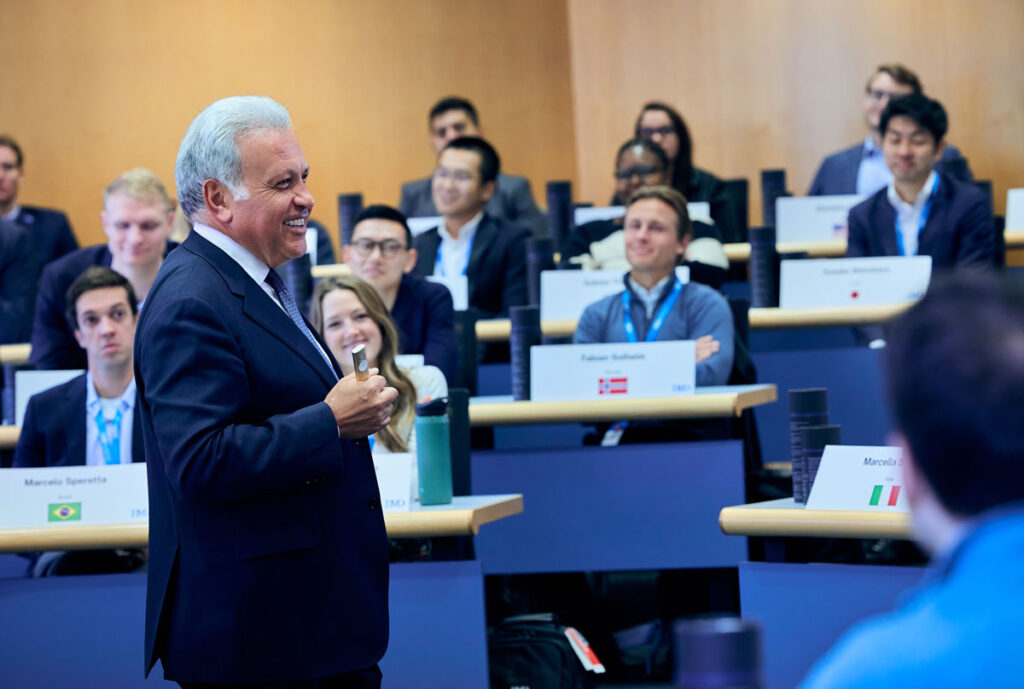Known for its leadership impact, our MBA program equips students with the skills and confidence to tackle challenges and seize opportunities across various industries and roles.
One of the most exciting developments in the 2025 program is the introduction of a Strategic Thinking and Communications module which sets the foundation for how MBAs approach complex business challenges, develop structured solutions, and communicate effectively.

With seven of our esteemed faculty members bringing their expertise to different facets of strategic thinking and communication, the module is highly interactive and immediately applicable.
Building the 10 transversal skills
At the core of the module is the development of 10 transversal skills, each essential for modern leadership, with students receiving continuous feedback to allow them to track their progress and identify areas for improvement.

These 10 skills form the foundation for problem-solving, decision-making, and leadership agility across all MBA courses and future business environments. One of the most innovative elements is the integration of AI-powered problem-solving assignments that challenge MBAs to use AI for structured decision-making while maintaining a critical human perspective. Rather than relying passively on AI-generated insights, students are required to refine and validate strategies – a crucial skill for leaders in the digital era.
Strategic Thinking and Communications
The first sessions, led by Michael Watkins, emphasize the importance of adaptive leadership in uncertain environments. His Surfing the Tsunami and Decoding Complexity sessions provide practical frameworks for diagnosing turbulent environments and leveraging pattern recognition and systems thinking. Students referred to these sessions as “transformative” and having “a lasting impact”.

Beyond problem-solving, other sessions are designed to sharpen communication and presentation skills and help students to articulate persuasively – a critical aspect of leadership. Arnaud Chevallier’s insights on asking good questions, as highlighted in his recent HBR article, underscores the power of curiosity-driven inquiry in making better decisions.
MBA feedback already reinforces the value of this two-week intensive learning experience. One claimed, “It wrapped all the transversal skills we have learned in Module 1 into a single business case, presenting us with the challenge of applying these skills effectively within a very limited timeframe.”
Another noted, “This module helped me identify my weaknesses in strategic thinking and storytelling, particularly in divergent and convergent thinking. I will start by focusing more on case interviews and Fermi questions.”

The Strategic Thinking and Communications module is more than just an academic course – it’s a transformative experience. By combining cutting-edge AI applications, transversal skills development, and expert faculty insights, it ensures our MBAs become not only great thinkers but also strategic communicators and agile decision-makers. As students track the impact of their new skills, one thing is certain: the module is key to laying the foundation for their future learning.